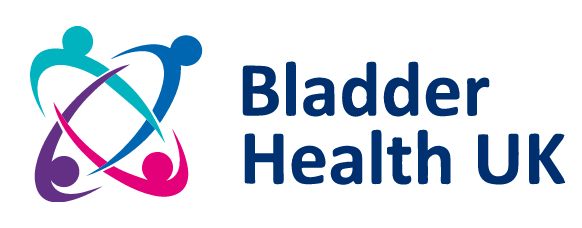Bladder Health UK & talkhealth coffee morning

Every Friday at 11am, we invite our members to grab a cuppa and chat with one another about a health topic. In the last session of each month, we invite a medical expert to join the chat and share their expertise.
January’s medical expert, Karen Powell, was our specialist bladder and bowel nurse from Bladder Health UK. Throughout the zoom meeting, she shared her tips for better continence self-management, approaching specialists and most importantly picking up the phone and admitting that you need help: ‘If you have got a problem, talk to somebody about it. The earlier you can be diagnosed, the quicker we can point you in the direction of the people who can help you.’
As well as answering specific questions, our chilled coffee mornings allow for natural group conversation - this is often when the most interesting things come up! Throughout the chat, Karen debunked several bladder myths. Read on to find out more....
Did you know that as you get older your temperature drops when you have a UTI? That blood in your wee isn’t always cancer, it’s just your body’s way of saying there’s something wrong? Or that having kids, or a prostate for that matter, doesn’t mean you have to experience bladder issues as you age?
The sexism surrounding incontinence pads was a hot topic throughout the 40 minutes, Karen said: ‘Of the 20 years I have been a continence nurse, I have felt strongly about pad companies supporting men and women to understand that there are a number of treatments available. Pads definitely have their place but they are not necessarily a long term solution for bladder weakness.'
It’s not only normalising incontinence that pushes the buttons of those living with wee issues, but it’s also the lack of male products advertised on television and in supermarkets. After all, incontinence isn’t a women-only issue: over 10% of men over 65 have a degree of urinary incontinence.
For those of you that missed the coffee morning, here’s some of Karen's best advice:
Is it right that we are more at risk of getting UTIs as we get older?
Yes definitely, bladder symptoms do get more frequent as we get older - more so for females than males. Male symptoms tend to be caused by the growth of the urethra from the size of a walnut in their twenties to the size of a small orange in their sixties. This restricts the flow through the urethra and can cause infection. Female symptoms are generally caused by menopause. The drop in oestrogen can irritate the genital area which means women become more predisposed to infection. Also, ageing in women causes the skin between the back passage and the urethra to shorten making it a lot easier for bacteria to transfer through and cause an infection.
What’s a normal amount to go to the loo?
NICE guidelines recommend that we should empty our bladder between 3 and 7 times in 24 hours. However, if you are living with an existing medical condition regularity can be affected. The best way to know whether your intake is good enough is to gauge what colour your urine is. Other than when we get up in the morning - when it will be darker due to being stored overnight - it should be a pale straw colour. If it’s coming out like water then you are drinking too much for your kidneys to deal with. If it is coming out darker in colour then your body is telling you that you’re not consuming enough liquid.
What are your tips for improving bladder incontinence after childbirth?
Different birth circumstances can affect incontinence. If someone has had a difficult delivery which has caused tears and cuts, or they have had a large baby, their bladder may be impacted. It usually takes about 12 months for the body to fully recover after giving birth. Doing pelvic floor exercises isn’t going to hurt, but you should build up slowly. If you have had children and you are still experiencing bladder leakage or over-activity you should seek advice - that’s what continence services are there for! There are also specialised clinics for mothers whose bladders have been affected by pregnancy.
About Bladder Health UK 
Bladder Health UK gives support to people with all forms of cystitis, overactive bladder and continence issues together with their families and friends. It is the largest bladder patient support charity in the UK. People can get in touch via an advice line, busy chat rooms and forums, a widely used website and active Twitter, Facebook and Instagram accounts. Their mission is to help people live positively with bladder illness through the provision of personalised support and care.
Karen works as a trustee for the charity and mans the advice line once a fortnight on Fridays. She works alongside a panel of medical experts, a Uro-Gynae Nurse and an Expert Patient. We loved having Karen at our event and look forward to learning more from her in the future and maybe even getting to know her donkeys!

Relevant support programmes to join - free myMS support programme
Information contained in this Articles page has been written by talkhealth based on available medical evidence. The content however should never be considered a substitute for medical advice. You should always seek medical advice before changing your treatment routine. talkhealth does not endorse any specific products, brands or treatments.
Information written by the talkhealth team
